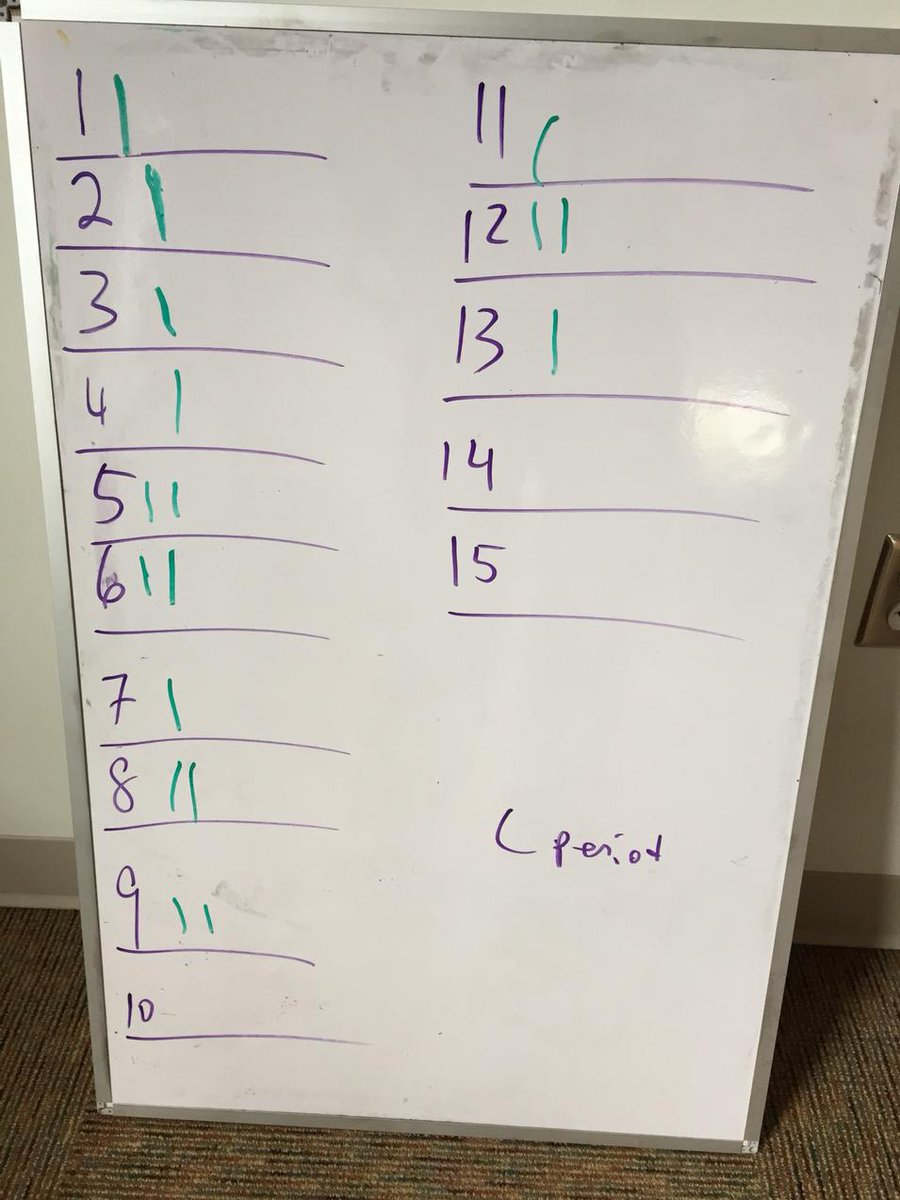I teach 9th grade at a boarding school for boys. When we host prospective students on campus, they often come to my class. I don't generally let them sit passively and watch -- I make every attempt to get them involved in the day's activity.
Yesterday (yes, we teach on Saturdays, aren't you jealous) a prospective student sat in as I introduced mirror ray diagrams. We had already covered ray diagrams for converging and diverging lenses, so the class already had the general principles of the topic ingrained. So class consisted of just a few elements:
1. A three-minute quiz based on questions on our recent assessment.
2. Grading that quiz
3. Six minutes of me demonstrating two mirror ray diagrams predicting the location of an image
4. Setting up a converging mirror to verify the ray diagram's prediction
5. Handing out this worksheet which includes nine situations for students to practice ray diagrams
At step 5, I put on music and allowed students to work at their own pace. They brought up each completed diagram for my approval.
So what did the visiting student do? He didn't know about ray diagrams, right?
No, he did not. I gave him a copy of the quiz just so he could follow along. I gave him a copy of the worksheet. I asked him to make his best effort to join in, attempting the ray diagrams and showing me his work. To this gentleman's credit, he did -- in a class of students a year older than he, when he must have felt very much the outsider, he joined in.
And, of course, he got things wrong. In his first attempt, he didn't use a straight-edge. Many of my class made that mistake seven days ago, when we first tried lens ray diagrams. I gently explained that he needed to use the ruler I had placed on his desk. So he went back to try again.
The next time he came up to see me, he had drawn a ray incorrectly, and his image was in the wrong place. Thing is, my students had made exactly these kinds of errors a week ago, too! It was cathartic for my guys to help this prospect out. Everyone in my class was friendly, helpful, welcoming...
...and a wee bit smug, knowing that they were beyond the rookie mistakes.
At the end of class, I shook hands with the prospect. He seemed relieved to be done, but also quite a bit proud to have joined this physics class seamlessly.
And a couple of my guys walking out with the prospect also walked a bit straighter. As a student, it's easy to lose sight of the significant progress you've made, even just a few weeks into the school year. When new material comes at you nearly every day, when tests and quizzes are raining down from every subject, it's so easy to focus on "failures" -- you missed this question, you didn't demonstrate this skill, you didn't remember this fact. Our visitor gave my students the opportunity to see for themselves the things they DID know, the skills they HAD developed. Helping this youngling out made them feel good, reinforced their own knowledge through teaching, and built tremendous confidence.
And the youngling? He kept working, kept listening to my students' advice with a smile, neither ran away screaming nor folded up silently in an intimidating academic situation. So I very much hope to see this guy in my class next year.



